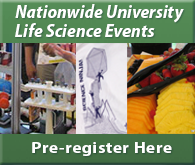Helicases and Nucleic Acid Translocases
Bioresearch Conference - Cambridge, United Kingdom
The study of helicases and translocases is a rapidly growing field, fuelled by the fact that helicase defects are associated with inherited human diseases including neurological disorders, cancer, and aging processes. Pathogens encode helicases, making these enzymes targets for new anti-viral or anti-bacterial therapies. New discoveries linking helicases to disease states are being discovered regularly, due to the fact that helicases and translocases participate in a wide variety of cellular functions. These include DNA replication, DNA repair, DNA recombination, transcription, ribosome biogenesis, translation, RNA splicing, RNA editing, RNA transport, RNA degradation, bacterial conjugation, chromosome segregation and viral packaging/unpackaging.
The biological importance of these motor enzymes is now very clear and new potential helicases and translocases are reported routinely in the literature. "Helicases and nucleic acid translocases" follows on directly from previous meetings in an established and popular series which has been held biennially since 1999. The meeting will encourage participation by experts in a variety of disciplines, with an emphasis on using interdisciplinary approaches to understand molecular mechanisms
![rob coll[1] resized 600](http://cdn2.hubspot.net/hub/45279/file-14328415-jpg/images/rob_coll[1]-resized-600.jpg?width=191&height=143&name=rob_coll[1]-resized-600.jpg)
(Photo courtesy of http://www.biochemistry.org/MeetingNo/74HDN/view/Conference/)
Sat, Aug 04, 2012 - Wed, Aug 08, 2012
Robinson College, Cambridge, United Kingdom
If you'd like to ask a question or post a comment about this talk please do so below.
This seminar posting is brought to you by Biotechnology Calendar, Inc. providing access to research information and research tools for nearly 20 years. Visit our Science Market Update Blog for current science funding and market information or see our schedule of upcoming science research laboratory product shows.








